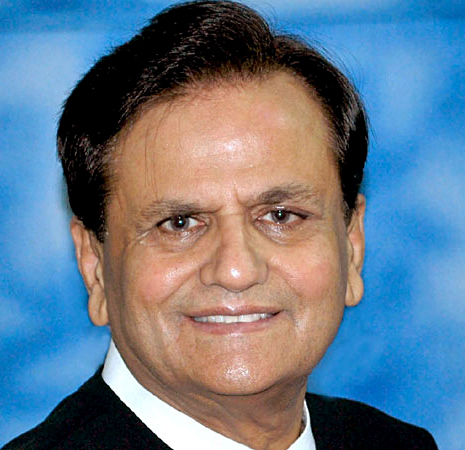In the past two decades, Ahmed Patel was undoubtedly the most influential Congress leader in the country. In fact, he was the de-facto president of the party, and every decision taken in the past 15 years in particular, bore his unmistakable stamp. Sonia Gandhi relied on him completely, and her tribute following his demise revealed her dependence on him; she described him as an irreplaceable comrade, faithful colleague and friend, thereby acknowledging his role in her political life. Political observers may have been surprised that she had used a Leftist term, Comrade, but then it is the bare truth that he was her confidant and she viewed him as an equal.
Ahmed Patel was a man of few words but his grip over the organization was absolute. Any message from him to those in the party would carry more weight than that of any other leader. He often gave an impression that he had mastered the essence of state craft, and though he may have never read the Prince, but Niccolo Machiavelli would have been proud to have him as his most favoured disciple.
Ahmed had apparently realized very early in life that power never rests with the Chair but elsewhere. Thus, he never hankered to be in the government and derived his strength by working behind the scenes and in the process acquired his enviable status. His critics often accused him of tilting the party towards the minorities, a perception that was responsible for the BJP’s mega victory in the 2014 Parliamentary polls. The perception persists even today though with his passing away, a new political architecture of the Congress may have to be created.
Ahmed, after Ambika Soni, was perhaps the senior most Parliamentarian in the current Parliament, going by the year of making the Parliamentary debut. He was elected to the Lok Sabha in 1977 and remained its member thrice and subsequently shifted to the Rajya Sabha where he was elected for the fifth time. Ambika had entered the Rajya Sabha for the first time in 1976.
Over the years, his strength grew because he did not shy away from learning the nuances of politics from people who were more experienced than him. For several years, he would land up at the residence of Indira Gandhi and Rajiv’s political secretary, Makhan Lal Fotedar, after 9 pm and stay there till late, understanding various issues. He acquainted himself with varied dimensions of the Congress by working in proximity with Sitaram Kesri, Pranab Mukherjee and Arjun Singh. He observed very closely when Pranab, Arjun and Fotedar enunciated the political resolution at the Shimla Conclave in 2003, urging like-minded secular parties to come together to counter the BJP.
He watched and imbibed moves that were made following the UPA victory in 2004. When Sonia Gandhi entrusted Fotedar with the task of drafting a list of probable ministers, it was Ahmed who landed up at his Balwant Rai Mehta Lane home, 15 minutes before time, to take the confidential document to the party president. It is another matter that he presented the proposal as his own, and Sonia accepted the recommendations in toto, except adding two names—Shivraj Patil and P.M. Sayeid, both of who had lost the polls—to the Manmohan Singh Cabinet. It was not an oversight, but Fotedar, who was the author of the document, never got an invite to the swearing in of the UPA government.
Ahmed had arrived in the big league and became the points man for any pivotal move initiated in the UPA era. When Madan Lal Khurana expressed his desire to resign as the Rajasthan Governor, “since he did not wish to live in a golden cage”, it was Ahmed who used Lalu Prasad Yadav to entice him to quit his gubernatorial post. Khurana was promised a Rajya Sabha berth but was left high and dry when he actually put in his papers. Ahmed and Lalu stopped taking his calls.
There are many political analysts who make the mistake of comparing R.K. Dhawan with Ahmed Patel. The comparison is unfounded since Dhawan was on Indira Gandhi’s secretarial staff, and she did not take political advice from him, but used him for implementing decisions. Ahmed on the other hand, was a political entity who framed the political blue print and also executed it to the last letter. Dhawan wielded immense power and was regarded as the most well-known Congressman after the Gandhi family. However, Ahmed thrived in anonymity, but left no one in doubt that it was his word that counted the most.
The impression that got created, rightly or wrongly, was that Sonia had outsourced the running of the party to him, and he did as he pleased while ensuring that his boss was kept in the loop and gave her approval, post-facto to some of the moves. His death implies that Sonia’s political innings has also ended.
I met him for the first time in the 1980s. However, there were journalists who knew him better than I did; some of them would not scribble a word on the Congress without his consent.
My last meeting was 15 days before he was hospitalised and unusually, he was vocal about multiple issues, particularly about a possible change of leadership in Punjab next year. This was prior to the farm laws becoming a conflagration point. He promised to have lunch with me at the Karim’s. God willed otherwise. Between us.
Ahmed Patel was the de-facto Congress boss
- Advertisement -

